Burnout is a growing concern for many professionals, and medical expert witnesses are no exception. These professionals often face intense pressure balancing clinical duties with the demands of legal cases. When burnout strikes, it can impact not only their well-being but also their ability to perform effectively in court.
This article aims to help medical expert witnesses understand what burnout is, recognize its signs, and learn practical self-care and resilience strategies to manage and prevent it. If you’ve ever felt drained, overwhelmed, or emotionally exhausted from your role as an expert witness, you’re not alone — and there are ways to fight back.

Understanding Expert Witness Burnout
What is Burnout?
Burnout is more than just feeling tired after a busy day. It’s a state of physical, emotional, and mental exhaustion caused by prolonged stress. It can sap your energy, reduce your motivation, and affect how you view your work.
For medical expert witnesses, burnout is often fueled by the unique challenges of their role, including high-stakes legal environments and conflicting responsibilities.
Unique Stressors for Medical Expert Witnesses
Medical expert witnesses face pressures that are different from other medical professionals. These include:
- Balancing clinical practice with legal casework
- The emotional weight of providing testimony that can affect lives and outcomes
- Navigating adversarial settings, such as cross-examinations
- Managing unpredictable workloads and tight deadlines
These factors can combine to create a heavy psychological load that, over time, leads to burnout.
Signs and Symptoms of Burnout in Expert Witnesses
Recognizing burnout early is critical. Here are common signs you might experience:
Category | Signs and Symptoms |
Emotional Exhaustion | Feeling drained, overwhelmed, or emotionally spent |
Depersonalization & Cynicism | Becoming detached or indifferent towards cases or clients |
Reduced Professional Efficacy | Doubting your abilities, feeling ineffective or unproductive |
If you notice yourself feeling numb, irritable, or constantly fatigued, these may be red flags.
Common Causes of Burnout in Medical Expert Witnesses
Burnout rarely happens overnight. It usually builds up over time due to several contributing factors:
High Workload and Time Pressures
Juggling patient care, report writing, depositions, and court appearances can create an overwhelming schedule. Constantly racing against deadlines leaves little room to recharge.
Emotional Toll of Legal Cases and Testimonies
Testifying in court is emotionally demanding. Cases can be complex, contentious, and sometimes distressing, especially when patient outcomes or legal consequences hang in the balance.
Isolation and Lack of Peer Support
Unlike clinical settings, the legal world can feel isolating. Medical expert witnesses often work independently, with fewer opportunities to connect with peers who understand the unique pressures they face.
Conflicting Demands Between Clinical Work and Legal Responsibilities
Trying to maintain clinical excellence while meeting legal obligations can stretch your time and energy thin, creating chronic stress.
Exposure to Adversarial Environments and Hostility
Cross-examinations and opposing counsel can be confrontational. Facing hostility or aggressive questioning can add emotional strain.
Lack of Control Over Legal Processes
Expert witnesses may feel powerless in the legal system, frustrated by delays, rulings, or case directions beyond their control. This lack of control can increase stress.
Impact of Burnout on Medical Expert Witnesses
Burnout doesn’t just make you feel tired. It can affect many parts of your life and career. Understanding its impact can help you see why it’s so important to address it early.
Effects on Mental Health and Well-Being
Burnout can lead to feelings of anxiety, depression, and chronic stress. You might find yourself feeling hopeless or emotionally numb. Over time, this wears down your resilience and makes everyday tasks feel overwhelming.
Decline in Professional Performance and Credibility
When you’re burned out, your focus and judgment can suffer. This may affect how clearly you communicate your expert opinions. In court, even small mistakes can damage your credibility and weaken your testimony.
Risk of Ethical Lapses and Impaired Judgment
Burnout can cloud your decision-making. Feeling overwhelmed might lead to cutting corners or overlooking important details, which can compromise your professional integrity.
Negative Influence on Personal Life and Relationships
Stress doesn’t stay at work. It often spills over into your personal life. You may become distant from family and friends or lose interest in activities you once enjoyed. This isolation can deepen burnout.
Potential Consequences for Legal Cases and Clients
Your role as an expert witness is crucial. Burnout can impact your ability to provide clear, objective, and reliable testimony. This can ultimately affect case outcomes and the clients who rely on your expertise.
Self-Care Strategies to Prevent and Manage Burnout
Taking care of yourself isn’t a luxury — it’s essential. Here are practical self-care tips tailored for medical expert witnesses.
Prioritizing Physical Health
Your body is your foundation. When it’s strong, your mind follows.
- Regular exercise
Even short daily walks or stretching can boost your mood and energy. - Balanced nutrition
Eat wholesome foods that fuel your body and brain. Avoid excessive caffeine or sugar. - Adequate sleep
Aim for 7-9 hours of restful sleep. Good sleep resets your brain and helps you handle stress better.
Mental Health Maintenance
Mental well-being requires just as much care as physical health.
- Mindfulness and meditation
Spending a few minutes each day focusing on your breath or practicing mindfulness can reduce anxiety. - Stress reduction techniques
Deep breathing exercises, progressive muscle relaxation, or guided imagery can calm your nervous system. - Counseling and professional mental health support
Talking to a therapist or counselor can provide strategies and a safe space to process your feelings.
Setting Boundaries
Boundaries protect your energy and time.
- Managing workload
Be realistic about what you can handle. Break big tasks into smaller steps. - Saying no to excessive demands
It’s okay to decline extra cases or requests when you’re at capacity. - Protecting personal time
Keep work from overtaking your evenings, weekends, or vacations.
Time Management Skills
Smart scheduling can reduce stress.
- Effective scheduling
Block out specific times for writing reports, court prep, and clinical duties. - Prioritization techniques
Focus on high-impact tasks first and delegate when possible.
Cultivating Hobbies and Interests Outside Work
Engaging in activities unrelated to work refreshes your mind. Whether it’s gardening, reading, or playing music, hobbies help you recharge and regain perspective.
Building Resilience as a Medical Expert Witness
Resilience is your ability to bounce back from stress. Building it takes intention, but it makes a big difference in how you handle pressure.
Developing Emotional Resilience
- Recognizing and processing difficult emotions
Allow yourself to feel frustration, sadness, or anger instead of bottling them up. - Cognitive reframing of stressful situations
Try to view challenges as opportunities for growth rather than threats. This mindset shift can ease stress.
Establishing a Supportive Professional Network
You don’t have to go it alone.
- Connecting with other expert witnesses
Sharing experiences and advice with peers can reduce isolation. - Peer mentoring and support groups
These provide emotional support and practical tips from those who understand your unique challenges.
Continuous Professional Development
Staying sharp and informed helps you feel more confident and less overwhelmed.
- Training on managing stress and burnout
Many organizations offer workshops or courses focused on well-being for medical experts. - Staying updated with best practices in testimony and legal involvement
Knowledge reduces uncertainty, one major source of stress.
Leveraging Organizational Resources
If you belong to any professional groups or institutions, see what wellness programs or support systems they offer. Sometimes the resources are there but overlooked.

Practical Tips for Managing Burnout During High-Stress Periods
Certain times—like right before a court appearance or during a busy deposition schedule—can be especially stressful. Having strategies in place to manage these high-pressure moments can help keep burnout at bay.
Preparing for Court Appearances and Depositions
Preparation is your best defense against stress. Here’s how to make it manageable:
- Review your reports thoroughly
Knowing your material inside and out boosts confidence. - Practice your testimony aloud
Rehearsing can ease nerves and improve clarity. - Anticipate tough questions
Prepare calm, factual responses to potential challenges. - Organize your schedule
Avoid last-minute rushing; plan travel and logistics carefully.
Techniques for Staying Calm and Focused Under Pressure
During stressful moments, simple techniques can ground you:
- Deep breathing exercises
Taking slow, deep breaths can lower your heart rate and clear your mind. - Visualization
Imagine yourself succeeding and staying calm during testimony. - Positive self-talk
Remind yourself of your expertise and past successes. - Short breaks
When possible, step outside or find a quiet space to regroup.
Debriefing and Recovery Strategies Post-Testimony
After the stress of court, allow yourself time to decompress:
- Reflect constructively
Think about what went well and areas for improvement without harsh judgment. - Engage in relaxing activities
Whether it’s a walk, a favorite hobby, or time with loved ones, recharge your mental batteries. - Connect with peers
Talking to colleagues who understand your experience can be validating.
Using Breaks and Vacations Effectively
Taking time off isn’t just about stepping away—it’s about true recovery:
Tip | Explanation |
Plan breaks regularly | Short, frequent breaks prevent overwhelm. |
Fully disconnect when possible | Avoid checking emails or case files during breaks. |
Engage in restorative activities | Sleep, nature, and mindfulness help reset your stress levels. |
Avoid overloading vacations | Don’t cram your time off with stressful plans. |
Recognizing Early Warning Signs and Seeking Help Promptly
Don’t wait until burnout becomes severe. Early signs include:
- Difficulty concentrating
- Increased irritability
- Feeling detached or cynical
- Persistent fatigue
If these pop up, it’s time to act. Revisit your self-care routines, adjust your workload, or seek professional support.
When to Seek Professional Help
Sometimes, burnout can become too much to manage alone. Knowing when to reach out is crucial for your health and career.
Identifying When Burnout Requires Clinical Intervention
Consider professional help if you experience:
- Persistent feelings of hopelessness or depression
- Anxiety that interferes with daily life
- Trouble sleeping or significant changes in appetite
- Thoughts of self-harm or severe emotional distress
These are serious signs that go beyond typical stress.
Types of Professional Support Available
You have options that can fit your needs:
- Therapy or counseling
Talking therapies provide coping tools and emotional support. - Coaching
Specialized coaching can help with work-life balance and stress management. - Medical treatment
In some cases, medication prescribed by a healthcare professional may be helpful.
Overcoming Stigma Around Mental Health in Medical-Legal Professions
It’s common to worry about judgment when seeking help. But mental health struggles are part of being human, especially in demanding roles.
Remember:
- Seeking help shows strength, not weakness.
- Confidentiality is a priority in professional support.
Taking care of your mental health improves your performance and longevity.
Breaking It All Down
Burnout is a serious challenge faced by many medical expert witnesses. It can quietly erode your energy, focus, and passion for your important work. But it doesn’t have to be this way.
Taking the time to recognize burnout early and actively care for yourself is essential. The self-care and resilience strategies we covered—prioritizing physical and mental health, setting boundaries, building support networks, and managing stress during high-pressure periods—are all tools you can start using today.
Remember, you’re not just an expert witness; you’re a human being with limits and needs. Nurturing yourself is not a luxury—it’s the foundation for a long, fulfilling career and a healthy life.
Frequently Asked Questions
What are some early warning signs of burnout that might be easy to overlook?
Sometimes burnout shows up as subtle changes, like feeling less enthusiastic about cases you once found interesting, increased irritability, or trouble concentrating. Paying attention to these small shifts can help you catch burnout early.
Can burnout affect my ability to remain objective as an expert witness?
Yes. Burnout can lead to emotional exhaustion and cynicism, which might cloud your judgment or make you less impartial. Staying aware and managing stress is key to maintaining objectivity.
How can I balance my clinical work with legal responsibilities to avoid burnout?
Effective time management and clear boundaries are essential. Prioritize tasks, delegate when possible, and communicate your limits with legal teams to ensure a manageable workload.
Are there specific self-care practices that work best during court proceedings?
Simple breathing exercises and visualization techniques can help you stay calm and focused. Also, try to take short mental breaks when possible, even if it’s just a moment to stretch or sip water.
Is burnout common among medical expert witnesses, or am I alone in feeling this way?
Burnout is quite common due to the high demands of the role. Many expert witnesses experience it at some point, so you’re definitely not alone.
How can peer support groups help with burnout?
Talking with colleagues who understand your challenges provides emotional relief, practical advice, and a sense of community, which can reduce feelings of isolation.
Can professional development really help reduce burnout?
Yes. Staying informed and improving your skills can boost confidence and reduce uncertainty, which are major stress contributors.
What if my employer or the legal system does not offer wellness resources?
You can seek external support such as private counseling, online stress management courses, or join professional organizations that offer wellness programs.
How do I know if I’m just stressed or if it’s full burnout?
Stress is often temporary and related to specific situations, whereas burnout is a chronic state of exhaustion and detachment. If symptoms persist despite rest, it’s likely burnout.
Are there any quick daily habits I can adopt to help prevent burnout?
Yes. Simple habits like setting a morning intention, taking short breaks to breathe deeply, staying hydrated, and ending the day with a relaxation routine can make a big difference over time.
Does seeking professional help mean I’m not strong enough to handle the job?
Absolutely not. Seeking help shows strength, self-awareness, and commitment to maintaining your professional effectiveness and personal well-being.
Can burnout affect my personal relationships outside of work?
Yes. Burnout can cause emotional withdrawal and irritability, which may strain relationships with family and friends. Taking care of your mental health benefits both your work and personal life.
What role does mindset play in combating burnout?
A positive mindset and the ability to reframe challenges as opportunities can improve resilience and reduce the impact of stressful situations.
How can vacations help if I feel overwhelmed by my workload?
Vacations offer essential time to disconnect, recharge, and gain perspective. To be effective, they should involve true rest and detachment from work responsibilities.
Is it normal to feel isolated as a medical expert witness?
Yes. Because the role often requires independent work and may not involve regular interaction with peers, isolation is common. That’s why building professional networks is so important.
Offsite Resources For You
American Psychological Association — https://www.apa.org
Offers extensive resources on stress management, mental health, and burnout prevention.
Mayo Clinic — https://www.mayoclinic.org
Provides practical advice on self-care, mindfulness, and coping with stress.
National Institute for Occupational Safety and Health (NIOSH) — https://www.cdc.gov/niosh
Focuses on workplace safety and health, including information on managing occupational burnout.
Mindful — https://www.mindful.org
A great source for mindfulness techniques and meditation practices to reduce stress.
Psychology Today — https://www.psychologytoday.com
Features articles on mental health topics and a therapist directory for professional support.
HelpGuide — https://www.helpguide.org
Offers clear, easy-to-follow guides on burnout, self-care, and emotional wellness.
The National Alliance on Mental Illness (NAMI) — https://www.nami.org
Provides mental health education, support, and resources for those facing burnout or stress

What’s Next?
If you’re a medical expert witness feeling the weight of burnout, remember you don’t have to face it alone. At MLPIME.com, we understand the unique challenges you face and are here to support you. Visit our Contact Page to reach out and learn more about how we can help you build resilience, improve self-care, and sustain a successful career in expert testimony. Take the first step toward reclaiming your well-being today.
